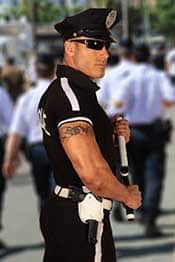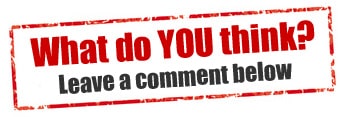What’s a Nondisclosure Agreement or NDA? Do you need one before you submit your book (or book idea) to a literary agent or publisher? And, how likely is it that they might sign a NDA?
This article answers all those questions,
and then some.
* * *
What Is a Nondisclosure Agreement or NDA?
A Nondisclosure Agreement (NDA) is a legally binding contract in which someone agrees to keep something confidential. You might say that a nondisclosure agreement is like copyright—on steroids. Think of an NDA as one more layer of armor that you can use to protect your book.
As an author, you probably like the sound of that…
Maybe you’ve heard rumors about someone’s book idea getting stolen. Or, if you’re a savvy businessperson (or a bit paranoid) you know that piracy is a possibility. After all, what’s to prevent a literary agent from sharing your brilliant book idea with another author who’s already their client?
In short, a lot.

* * *
Should You Try to Get Literary Agents to Sign an NDA?
I’m not saying you shouldn’t take every measure to try and protect your work. You should (my legal counsel made me say that). What I AM saying is that stealing your idea is probably the last thing on a literary agent’s mind.
Why?
For starters, most literary agents get more than 1,000 (in some cases 1,500) submissions every month. That means agents don’t need to steal ideas.
Seriously.
Literary agents have more good ideas than they can handle as it is. When a literary agent tells you (in one of those trying-to-be-polite form rejection letters) that they’re forced to pass on lots of publishable work…
They’re not lying.

If you’re losing sleep over the possibility of someone taking your ideas… think about what that would really mean. How long would it take someone to copy your book or incorporate your ideas into their own book—and do it in a way that it doesn’t seem like yours?
When you consider the amount of time and effort that would require,
it doesn’t make much sense, does it?
Then there’s the potential for legal action…
Do you really think a literary agent is going to risk his or her career and lifestyle over something like this? Besides, a literary agent could go to all that trouble, and the book still might not sell.
Um, yeah…
I don’t think so.
Now, when it comes to the movie industry you have more of a reason to be concerned. That’s because it’s easier to write a 110-page screenplay than a full-length book. So idea theft is more common in Hollywood.

But not much…
It’s extremely rare to see cases like this reported in the media. And, when they do pop up, there’s often nothing to the story. It’s usually just a frustrated author who thinks someone stole his or her idea; because (guess what), most ideas aren’t as original as we creatives (myself included) like to think they are.
Before my father passed away when I was a teenager, he was convinced that someone stole his idea for putting electric windows in cars. He told me that story a lot when I was growing up. And he was not happy about it.
I know, maybe he really was the
first person to think of the idea.
But I doubt it.
Now, because it’s easy for authors to get the wrong idea, most movie executives and literary agents (as well as smart coaches and consultants like myself) refuse to sign nondisclosure agreements. It’s just too easy for an author to see a “similar” book or movie down the road and wonder if we were up to some shenanigans.

So…
You’re not going to get most successful people in the entertainment industry (including myself) to sign an NDA; in fact, you’re going to have to sign an agreement instead. It will say that your ideas are, well, your ideas… and that you didn’t steal them from someone else. How’s that for “flipping the script?”
You’ll also have to say you understand that the literary agency has access to materials and ideas that may be similar to yours in theme, idea, plot, or format. And you’ll have to acknowledge that you won’t be entitled to compensation because of the use of any such similar or identical material if the literary agency or its clients create such material independently.
* * *
Nondisclosure Agreements – The Bottom Line
So, what can you do to protect yourself if you can’t get a literary agent to sign a nondisclosure agreement? Start by copyrighting your book. Then do your due diligence and research people (success stories and testimonials are a good indicator of reputation and ethics). Lastly, trust your instincts.
At some point, if you’re serious about getting your book out there… you’re going to have to trust someone. I know that can be hard, especially if someone has burned you in the past. But you’ve got to get over it.
True…
An agent can’t steal your idea if you don’t put it out there.
But you can’t get a publishing deal
that way, either.
– Mark


* * *
* * *

I copyright my novels with two submitted to the Library of Congress before they are on the market. For $35.00 it is a very cost effective insurance policy.
Hi Will, always a good idea… posting my copyright article here for anyone who wants to know more: https://literary-agents.com/how-to-copyright-a-book/.
Have a good night,
– Mark
Mark Malatesta
The Bestselling Author
http://thebestsellingauthor.com
Literary Agent Undercover
https://literary-agents.com
Mr. Malatesta: Great piece, of course! Please forgive my inexperience, but I take from your column that I should probably copyright my novels before offering them to an agent, just to be on the safe side, correct? I’ve read so much conflicting stuff on whether an author needs to procure a copyright on his work even before getting an offer to represent. I would appreciate any clarification. Thanks!
Hi Jeff,
Take a look at this article which is my take on what you need to know about copyright: https://literary-agents.com/how-to-copyright-a-book/.
And have a good night!
– Mark
Mark Malatesta
The Bestselling Author
http://thebestsellingauthor.com
Literary Agent Undercover
https://literary-agents.com
Dear Mark,
I take issue with your comment about it being easier to write a 110-page screenplay than a full-length book. To write a first draft screenplay is an effort in itself; to write a screenplay to production stage takes numerous re-writes, painful and gut wrenching exercises necessary to put thoughts into meaningful action/exposition. I have written two (and a half) novels and four screenplays (none produced or published) and I am reluctant to consider one easier than the other.
Hi Jeff,
Fair point… I should have said faster… not easier… although it’s probably both. No good writing is easy… or fast… of course… and I know that a case can be made for it taking someone longer to write something concise or more powerful… than something long… but I still believe it takes more time for someone to pen a well-written novel that’s 100,000 words than a screenplay that’s a quarter or so as long. It would be like someone saying that it’s just as hard… or harder… to write a short story as a novel… but I haven’t written a novel or a screenplay so my opinion on this matter is just… well… my opinion… which might certainly be shortsighted.
I certainly didn’t intend to diminish your work,
– Mark
Mark Malatesta
The Bestselling Author
http://thebestsellingauthor.com
Literary Agent Undercover
https://literary-agents.com
Very interesting! Logic is the solution to an apprehensive author. I agree to logics conclusion that it is most likely true. Quite frankly, I agree that it is more headache than worth stealing. In my case, my novel is fiction based but difficult for a writer to duplicate without the experience that I call upon. Simply stay current on the daily news and a writer has one big source for ideas. I appreciate your input since it eliminates another possible concern. Thank you!
Thank you Tom, well said… and have a good night!
– Mark
Mark Malatesta
The Bestselling Author
http://thebestsellingauthor.com
Literary Agent Undercover
https://literary-agents.com
I copyright EVERYTHING myself! Don’t delegate it to anyone! Go to //eco.copyright.gov/eService_enu/start.swe?SWECmd=Start&SWEHo=eco.copyright.gov I suggest everyone else in this industry do the same. Additionally; don’t forget the 17% rule. This is a legal precedent that states that if 17% or more has been changed the remaining content of a story can be used. Also; get yourself an entertainment lawyer.
This 17% thing is VERY scary! I hadn’t known that, so thanks for the heads up.
Mark, what do you have to say about this? I’d really like to hear, since if only 17% of your original work needs to be changed so that someone else can claim it, it hardly seem impossible,or even unlikely… and now I’m worried all over again… and even more so than I was to begin with! 🙁
Definitely something to think about.
Hi Shaan, best to consult with a lawyer if needed…
– Mark
Mark Malatesta
The Bestselling Author
http://thebestsellingauthor.com
Literary Agent Undercover
https://literary-agents.com
Hi Tim, here’s my take on copyright: https://literary-agents.com/how-to-copyright-a-book/.
Have a good night,
– Mark
Mark Malatesta
The Bestselling Author
http://thebestsellingauthor.com
Literary Agent Undercover
https://literary-agents.com
You’re right about books, but Hollywood in plagiarism is common. It’s because if a screen writer sues a producer they can forget screen writing. A regularly produced friend sued a producer and won. He couldn’t get a job for 3 years. If you’re a real writer you’re out of luck for a different reason. Studios have a mass of lawyers. I had a published novel plagiarized to make a film grossing a billion $$. 2 law firms really wanted it on contingency basis if I’d pay costs:$100/150000.
END OF STORY!
Hi Jack, that’s what I’ve heard… book business not much of an issue… movie business… another story… sorry to hear about your experience.
– Mark
Mark Malatesta
The Bestselling Author
http://thebestsellingauthor.com
Literary Agent Undercover
https://literary-agents.com
Hi Mark,
How does one copyright a book? Can every book be copyrighted?
Thanks, Mohsen
Hi Mohsen,
Take a look at this article which is my take on what you need to know about copyright: https://literary-agents.com/how-to-copyright-a-book/.
And have a good night,
– Mark
Mark Malatesta
The Bestselling Author
http://thebestsellingauthor.com
Literary Agent Undercover
https://literary-agents.com
Excellent article!! This is something I do worry about when thinking about publishing. I have two copyrighted stories I don’t know what to do with because I don’t know where to go or who to trust with my ideas. This article really helps reduce the paranoia. 🙂 Thanks!!
Thank you Laura, and have a good night!
– Mark
Mark Malatesta
The Bestselling Author
http://thebestsellingauthor.com
Literary Agent Undercover
https://literary-agents.com
yes I’m concern about sending my screenplays to Hollywood. I do understand that there’s nothing new under the sun. I do think my writing is unique I always have an unusally twist in my writings because I’m unique.. I do have written several children books and illustrate. I would like to publish them in California. I’m from New Orleans. I also sing and write songs. I write musicals screenplays for children I need a literary agent and I need a publisher. My writings are copywritten.
Hi Patricia,
I’m happy to help if possible… when you’re ready. If you want help with anything else, you can post questions for me online here: http://thebestsellingauthor.com/ask/. And you can register for an introductory coaching call with me here: http://thebestsellingauthor.com/coaching/intro-call/. Either way, I’m looking forward to learning more about you and your work.
Have a good night,
– Mark
Mark Malatesta
The Bestselling Author
http://thebestsellingauthor.com
Literary Agent Undercover
https://literary-agents.com
Well said,mark.That was the “first” thing I did.
🙂
– Mark
Mark Malatesta
The Bestselling Author
http://thebestsellingauthor.com
Literary Agent Undercover
https://literary-agents.com
I think the issue has been analyzed and the provided answer is logical.
Thank you Svetlana, glad it was helpful…
– Mark
Mark Malatesta
The Bestselling Author
http://thebestsellingauthor.com
Literary Agent Undercover
https://literary-agents.com
Hello Mark,
What are your thoughts on NDAs designed to keep authorship concealed (ex. someone looking to maintain pseudonymity), and not about the content of the manuscript? Would that be considered uncouth?
Hi Melanie, for some reason your comment/question went to my spam folder and I wasn’t notified about it… so my apologies for the delay getting back to you. Now to your question. Everything in my article still applies. Unless you’re famous or something like that, it’s probably not an issue. Why would an agent or publisher be motivated to reveal your identity? But every case is unique so I won’t say don’t ask… but you might want to consult with someone like myself before asking that of agents and publishers. It can really work against you if it’s not something that’s really necessary.
Also…
If you haven’t already done so, make sure you take advantage of all the resources (no cost) on our main website here to help you take your writing career to the next level: http://thebestsellingauthor.com/membership/. I’m also happy to answer any questions that you have online here: http://thebestsellingauthor.com/ask/. And, if you’re serious and believe we’re a good fit, you can register for an introductory coaching call with me here (there is a fee for that): http://thebestsellingauthor.com/coaching/intro-call/.
One way or another, I’m looking forward to learning more about you and your work.
Have a good night!
– Mark
Mark Malatesta
The Bestselling Author
http://thebestsellingauthor.com
Literary Agent Undercover
https://literary-agents.com
I still require an NDA because they prevent theft and that flip the script only protects you. I’ll publish independently. I’m not interested in feeding the big machine. Momma didn’t raise a fool. NDA’s are there for a reason
In rare cases, it’s justified, and you can get agents to sign one. Good luck. Mark
So~it’s a catch 22 and you just need to trust. Not easy for me and maybe most writers. Yet, ok I hear you.
?
Sort of. You do need to trust, but you can be smart and make sure you only trust people who seem trustworthy… and know what they’re doing. For the most part, writers being paranoid holds them back more than people stealing their ideas, etc. Mark
I agree period(Trust is the key).
Hi Frank, thanks for posted. Here’s to finding good people you can trust. Every author deserves that. Mark
Good Morning Mark! *Smiles*
I’m an aspiring Author, directed to your site by a fellow Member of an Author Group, because of your open “Chat” session tonight! SO EXCITED! I have been voraciously consuming your site since this A.M. (LOVED the JKS dwnld, Thank you for ALL you SHARE!)
RE: “Theft”, there’s now a program that recognizes a writer’s “Style” to help prevent Thesis Selling, hence it’s even harder to pull off Thefts! Take that Ye ol’Paranoids! *Winks*
A Max Char Count = You Minx! *LoL*
Hi B.L. catching on comments today. Hope you’re having a great weekend. Glad you found me and hope the live chat was what you hoped it would be. And thanks for letting me know about your feedback on the JKS call. I’ll let her know. And I love knowing about the program you mentioned, didn’t know about that. If you know the name of it, please post it. Mark
I know of people around Hollywood that claim every one of their great screenplay ideas was stolen. Ideas can’t be copyrighted so no one can stop borrowing (stealing) ideas. Where does the copyright infringement line cross? I’ve written many screenplays myself. I think novels are harder to infringe because the specific adaptation of an idea is so much more extensive and detailed. | Nondisclosure Agreements – NDA
Hi Warren, thanks for sharing that. Now other people reading this will know I’m not crazy. The line about what is theft and what isn’t can be a fuzzy one. It would take hours to explain, and even then… there are a zillion exceptions. And I agree with you on the novel front. The more detail there is (like in a novel compared to a screenplay), the harder it is to copy without it being obvious. Thanks for posting and have a great weekend. Hope to see you again soon. Mark | Nondisclosure Agreements – NDA
HI Mark
Thanks for sharing the article. With 1500 submissions an agents has to handle in a month, what are the chances that he even remembers your ideas? I never had any fear about such matters.Like you said,no agent or publisher is dumb enough to destroy their hard-earned careers and lifestyle.
Keep it up with your health ride. | Nondisclosure Agreements – NDA
Hi Saw Lian, very true. Taking someone’s idea is the last thing on a good agent’s mind. Authors should spend more time becoming better writers… and less time worrying. 😉 Here’s to good writing and good health. And thank you for posting. Mark | Nondisclosure Agreements – NDA
Very meaty article, Mark. There’s a lot of well-stated info about something most of us have wondered about. I like your down-to-earth style with supportive facts through personal experience. Also, the easy-flow that keeps readers absorbed throughout the entire message. — And I’m happy your health regimen is going so well. (I’ve lost 15 lbs so far this year…would have been more except for chocolate and peanut butter…those scrumptious little culprits!) :> Janet | Nondisclosure Agreements – NDA
Thank you Janet. It takes quite a bit of time to put these articles out, so it’s good to get the feedback. And thank you for the fitness encouragement as well. I’m loving the new me. Yes, I have my guilty little snack pleasures as well. But you’ve got to have some fun. Here’s to staying healthy but not overdoing it. Have a great weekend and see you again soon I hope. Mark | Nondisclosure Agreements – NDA
Hello Mark;
After listening to your tapes, I did put together a two page query, but I’m not sure what detail goes into a synopsis. Do you have a video or something covering that aspect of a manuscript?
I like what I’ve heard so far.
Jim | Nondisclosure Agreements – NDA
Hi Jim, thank you. And I do have some tips on writing a synopsis. Here you go: https://literary-agents.com/get-a-literary-agent/synopsis-for-literary-agents/. Let me know what you think, and have a great weekend! Mark | Nondisclosure Agreements – NDA